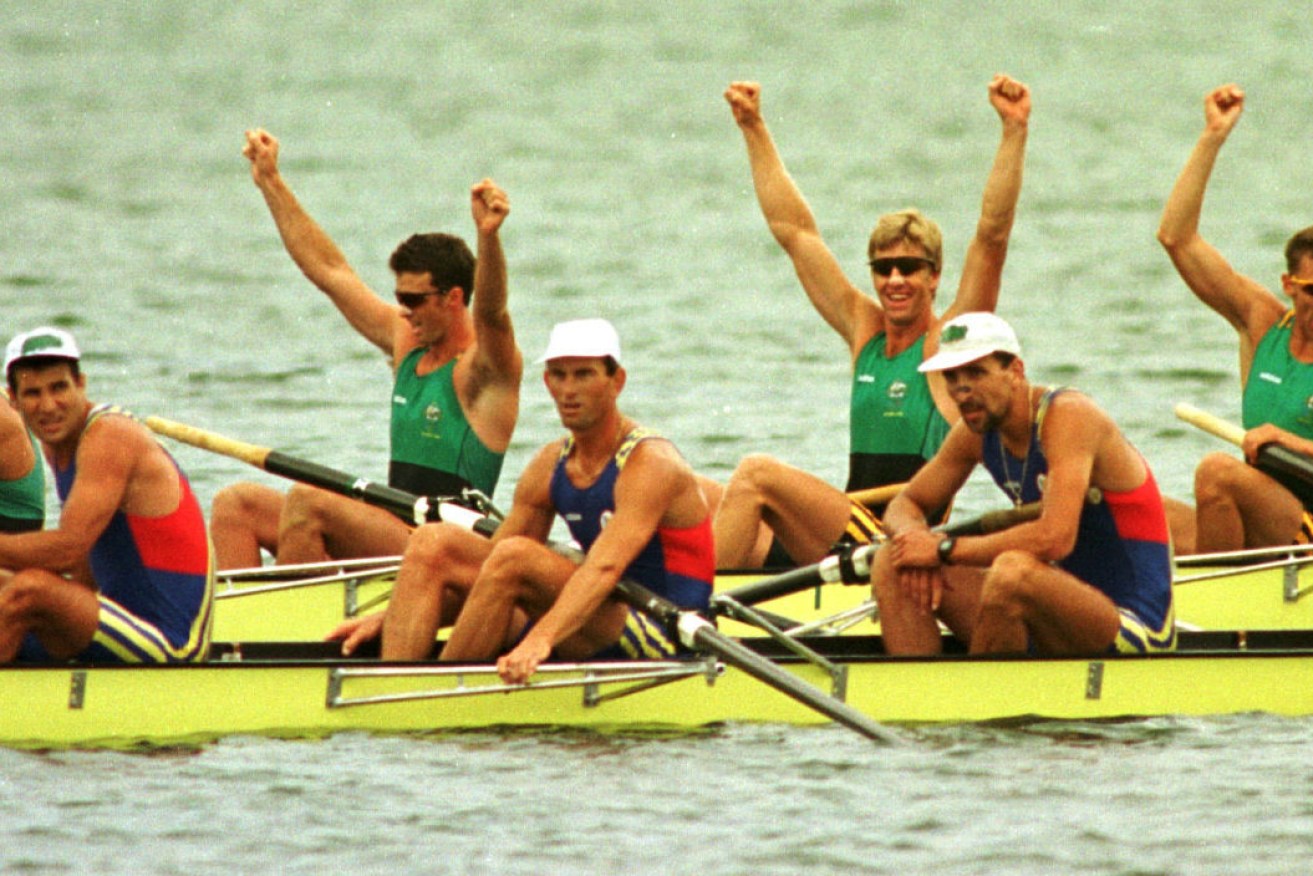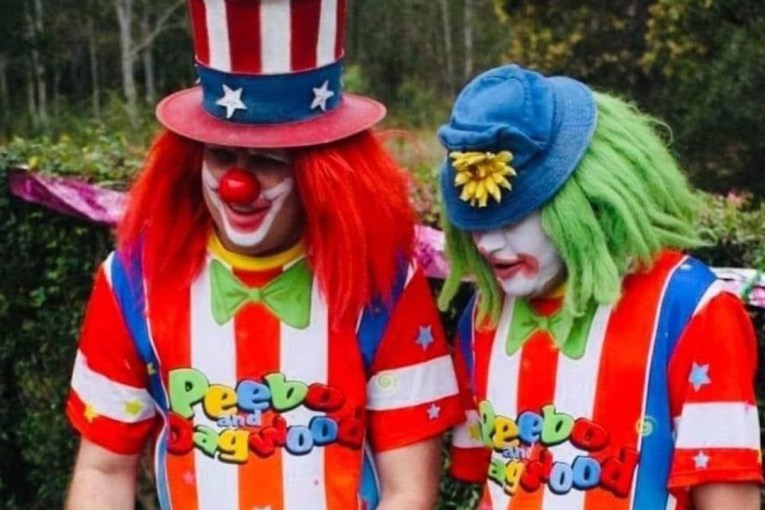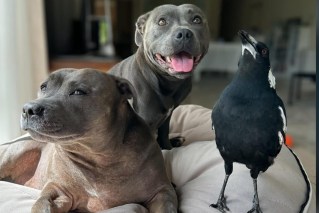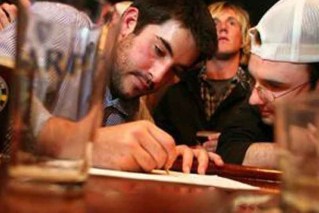Shock and oar – the things rowing can teach us, on and off the water
If you want to learn valuable life lessons about accountability, cohesion, timing, teamwork, discipline, precision, endurance and courage, try sticking an oar in, writes Michael Blucher


A report has cast doubts over the benefits of the Olympics (Photo: AAP PHOTO / ROD TAYLOR)
I’d rarely heard words so welcome. And out of the mouth of my 14-year-old son, no less.
“Dad, I’m not sure I want to row next year.”
I did my best to appear rueful, or at the very least quizzical, but under the table, my right arm spasmed involuntarily. It may or may not have been a private little air punch. Unwitnessed by adolescent eyes, of course.
“That’s OK mate,” I reassured him. “Rowing’s not for everybody. It’s good that you’ve had a crack.”
My elation of course was driven entirely by selfishness. No more waking up at 3.45am, to be at the shed by 4.15, ready to go. Tick.
No more weekend trips down to Wyaralong (where?) to see the last 150m of the race, having spent the initial 1350m cheering for the wrong crew. Or crews, depending on the quality of your binoculars. At rowing regattas, you get to appreciate the dash to the finish line, but that’s about all.
Mate, if you don’t want to row, that’s fine. It’s your call. Whatever you decide.
His two elder siblings had also rowed at school – perhaps initially more out of curiosity than anything else. But they’d enjoyed it – at least talking about the race after the race. The ergos? Not so much.
To better understand what the kids were experiencing, I decided I’d get better do some rowing myself. I joined the Old Boys rowing association, or whatever it was called, and set my alarm.
That social “experiment” lasted eight weeks. I found it a little unfulfilling, to be honest. Nobody in the hotch-potch crew – not even the cox, could stay in sync with me. Granted, they were mostly newcomers to the sport, but hardly dripping in natural talent.
In retrospect, I blame the coach. I know he was getting up at 4am every Thursday out of the goodness of his heart, but boy, talk about anger management issues.
“Seat 4 – not like that – use your legs, then your arms, head up, straighten your back, keep your elbows in, twist the blade with your outside hand. Not that one, the other one. You’re too tense – for God’s sake. JUST RELAX”.
I nodded knowingly. What chance did we have as a crew with a gibberer like that in the boat? Completely uncoordinated. And in capable of following simple instructions.
Then I realised I was Seat 4.
As I said, that coach – serious anger management issues.
Over early morning coffee after our third session on the river, I asked politely how long he’d been in the army. “What do you mean? I work in advertising,” he retorted indignantly.
Whoops.
I wasn’t encouraged to stay on after the completion of the two-month trial. Sergeant Major Order-Barker had clearly white-anted me.
Never mind – as we know, rowing’s not for everybody.
For a few weeks after the family’s Grade 9 rowing retirement, I was enjoying the sleep-ins and the leisurely 6.30 cups of coffee in bed. But then I saw an email from the school, updating the “rowing community” on details of the first regatta of the season.
I was hit by a pang of guilt, followed seconds later by a twinge of sadness. No more rowing … really? I was just starting to enjoy it …
Is there any sport on the planet that even comes close to teaching us the same volume of valuable lessons, as the ancient and regal pursuit of rowing?
Accountability, cohesion, timing, teamwork, discipline, precision, endurance, courage – the list is never-ending.
There’s also no sport that sits closer to the precipice of disaster.
The slightest of schoolboy errors, an oar two centimetres too low on the water, the twist of a blade a split second too early or too late, and it can all turn to hell in a hand-basket. The boat stalls abruptly, and the rest of the regatta glides by. A winning lead, traded for last place, on the back of one infinitesimally small mistake.
Sometimes the best crews don’t win. Another harsh but salient life lesson. Get it right when it matters most.
Curiously, of all our elite (Olympic) athletes, our rowers are probably among those afforded least public acclaim. Without a catchy name and the marketing might of tinned peaches behind them, they remain largely anonymous, even a little un-relatable.
Perhaps that’s because rowing is seen as the exclusive domain of elite private schools and hoity toity universities.
Did I hear someone say Yale and Harvard, slogging it out on the Thames in New Connecticut? Or Pimms and boaters on the bank of the Henley, watching crews from Oxford and Cambridge and elsewhere stretch out in their zooties? Jolly good show, old chap.
Yes, there is that.
But maybe it’s because we never really get to know our rowers. It’s not like too many of them are getting arrested outside night clubs at 4am. How could they be? They’re already in the boat, on the water by then.
No, rowers are typically intense, disciplined, focused, high achievers, who don’t have a spare second in their day.
A few years ago, at a conference in Sydney, I got chatting to Mike McKay, a member of the “Oresome Foursome”. You’d search long and hard to find a more engaging, impressive, down to earth individual,
Over a beer, I asked McKay about his “why” – the reason he rose before light six mornings a week, trained like a maniac, worked full time, studied, and very occasionally, lived.
He didn’t hesitate.
“I just loved the visibility,” the four-time Olympian and dual gold-medalist said. “When you’re in a boat with a bunch of blokes, there’s nowhere to hide. You know how hard you’re working, and so do they. But no matter how much pain you’re in, how close you are to a lung popping out of your mouth, you’re never going to ease up, because you’ve got a responsibility to your crew mates. Coming first, winning gold, that’s great but what makes it so special is doing it together.“
And that was that. He grabbed another couple of beers from a passing waiter and we started talking about tinned peaches.
Very solid citizen, Mike McKay. The son any father would be proud of.
At the right moment, I might encourage boy wonder to have just one more season down at the shed.
I’m not quite finished with rowing yet.












